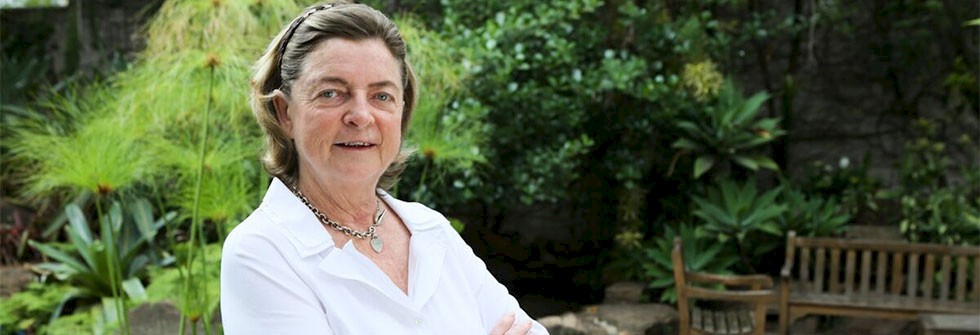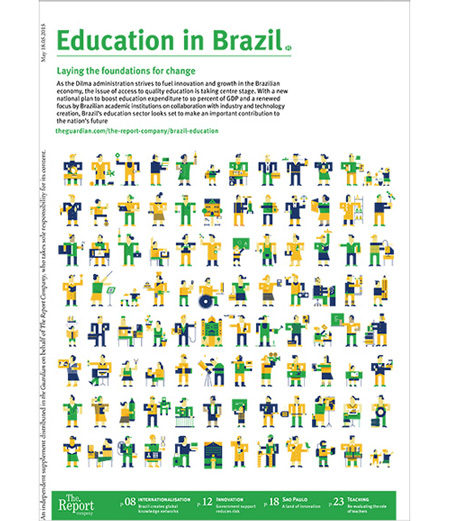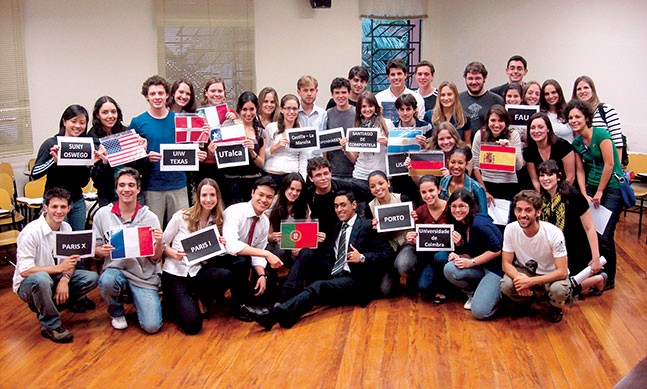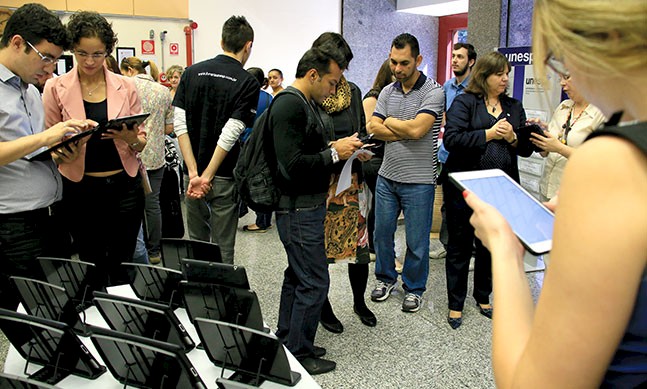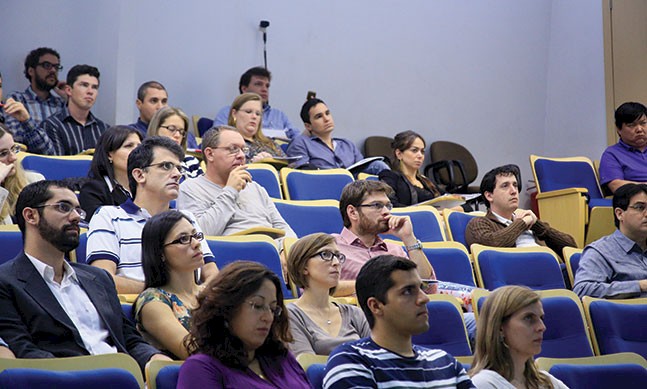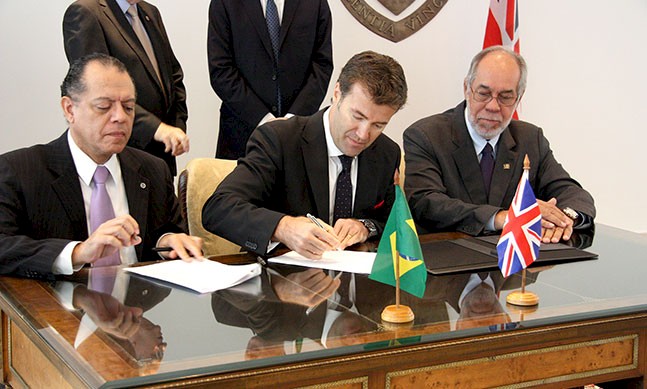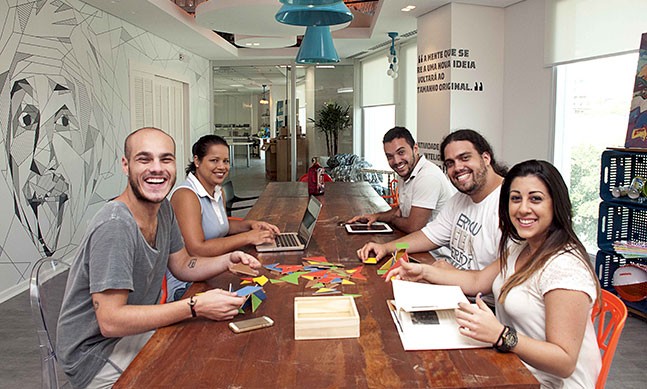Lorraine de Matos is the general manager of Cultura Inglesa Sao Paulo, the largest non-franchise English language school of all Latin America, with schools in the states of Sao Paulo and Santa Catarina. She spoke to The Report Company about the progress Brazil is making in English-language teaching.
The Report Company: What are your views on Brazil and the UK getting together through education?
Lorraine de Matos: Decades ago where there was huge investment and interest from the UK in Brazil, the British Council brought teacher trainers and British specialists out to contribute to the development of Brazilian professionals in the teaching of English as a foreign language.
Today, the British Council has a renewed interest, especially in the opportunities created by the Science without Borders programme. There has been a recent increase of British activity, helping Brazilians to do a degree in the UK. Science without Borders was a provocation to Britain, especially because many Brazilians gave preference to Portuguese universities due to the language issue. I think that was probably an efficient wake-up call for the American and the British governments and since then we have seen a sudden hive of activity. More recently the British Council has started teaching English at the basic level at universities here in Brazil.
The Science without Borders programme was also a wake-up call for the Brazilian government to the need for higher levels of English. It probably did more good for the spread of the need of the English language than the World Cup. The whole idea that the World Cup was going to spur a growth of English wasn’t true, because with very few hours of English instruction, taxi drivers and other service workers in Brazil felt they had all the English they needed to interact with visitors.
Science without Borders is a completely different story in terms of language proficiency. For you to get into a British university, you have to have a level of English that allows you to understand lectures, analyse, criticise, synthesise, and write academic papers. This is totally different. For you to go to a British university you’ve got to be at least around a proficient level, which is between 700 to 1,000 hours of English instruction. I am not sure that the government was aware that only five percent of the Brazilian population had a good command of English.
TRC: How easy has it been for you to recruit English teachers?
LM: For quality English, you need quality teachers. Recent graduates of the best Brazilian universities do not have the necessary knowledge of English to work for us nor the necessary teaching practice. There’s a great gap between the theory and the practice. So unless these graduates have been to a language school or have been abroad or read a lot in English, they do not reach our standards for hiring. We discard two thirds of the curricula we receive. This is a serious problem. It’s so serious that we have had to open our own faculty dedicated to teachers of English. It is unique in the sense that when you leave, you speak English with proficiency. For that to be a unique academic proposition is interesting to say the least. Even in the best Brazilian universities, the level of the spoken English is poor. That’s a problem. If you don’t have a teacher that speaks English, how comfortable does this person feel about delivering a class in English?
TRC: What is Cultura Inglesa’s position on supplying courses to those universities interested in taking their internationalisation process further?
LM: We would be very interested in helping. How many subject matter specialists at universities can deliver their classes in English today? Definitely not enough. This is an area where we can contribute. The problem in Brazil is the time it will take to get these subject specialists to the level of proficiency necessary and the need for immediate action to prepare future specialists.
The present educational system does not create opportunities for students to have proficiency in English. Cultural awareness issues also need to be considered.
There are people in the secretariats of education and in the state governments who have brilliant ideas. The 2011 curriculum of English for the state of Sao Paulo for example has a clear and ambitious vision and view of learning. Then you see the results of the teacher, who hasn’t had any practical experience and is not necessarily the subject specialist. They have access to this vision but it is not converted into classroom practice. There’s this huge gap.
The government is definitely thinking about this need but unless there is a plan which goes from concept to detailed implementation, it’s not going to work. Either they call in specialists to influence the formation and implementation of appropriate language education policies, or we will continue to have a gap between a marvellous idea and the practice, and Brazil will lose another five years or more.
This could be an opportunity where Britain can contribute because Britain knows how to work with partnerships between the public sector and private enterprise. They have decades of experience, in this area as well as internationalisation of education.
“The present educational system does not create opportunities for students to have proficiency in English. Cultural awareness issues also need to be considered.”Tweet This
TRC: What can you tell us about your teacher training project?
LM: We have trained around 7,000 public sector teachers over nearly 20 years through our programme. We start with the absolute basics. The first thing we do is to teach the language. This is critical because it gives them a comfort zone. You can’t teach the language unless you can actually speak the language; otherwise you are teaching about the language rather than teaching the language itself. This is an important thing to understand.
Once we’ve done that we then subsidise courses at PUC-SP [Pontifical Catholic University of Sao Paulo]. For those teachers who don’t live in Sao Paulo we have an online course. And this programme is totally free; it is part of our social projects. We do this as our return to society. But this can be replicated in a paid format as well.
Apart from that, we help out at the CELs, the public language centres with professional development programmes for their teachers.
We would very much like to expand all these programmes. And there we have the difficulty. Although these are free programmes, if you have a teacher who is working in three shifts, from morning to night and Saturdays, when can they do a course? So we’re being creative. We’re now thinking of alternatives such as holiday courses, immersions, and others. The teachers’ reality is quite complex.
TRC: What is your view on the dropout rate of English language courses?
LM: Students are students all over the world. The Cultura Inglesa has a privileged position; we have a very high retention rate of over 80 percent. But the market average I would say is around 69 percent. There are various reasons for this. If you are an adult, and you’re working, you’re travelling two or three hours a day to and from work and there’s only so much you can take after the working period. People get tired and they stop for a while. Children get tired too because they do the full period at school and then the after school activities. And of course there is the quality of the courses, but there are ways of getting round that.
What providers need to realise is that language programmes should be close to the reality of the students. If you bring in things like relevant content, technology, mobile-assisted language learning; if you talk about concepts they understand; if you empower them to participate in the choices of what they’re learning, all these things help. That’s probably why our retention rate is so high. The easiest way of getting children at school motivated is to bring them as close as possible to real life needs for a foreign language which is very possible through technology. Classes become alive and meaningful.
TRC: There’s been a lot of change in the sector. How do you see the position now of Cultura Inglesa within the education market?
LM: The market has been focussing on acquisitions as a growth strategy. We position ourselves more strongly at the quality end of the sector. And in our particular case because we’re not for profit we can allow ourselves to invest heavily and above market levels in teacher education.
For example, we can send our teachers to Bell Schools in England for language and culture programmes. This gives them a much broader understanding of British language and culture, which means a richer class. Our teachers take the Cambridge ELT certificates and diplomas which also gives a very rich and reflective view of teaching and learning. When our teachers go to the classroom they know what they’re doing, why they’re doing it, how they’re doing it, and they have the language to do it in. They are full time, fully-qualified teachers. We are also present in a number of professional organisations to keep abreast of research and development in our field, such as our presence in The International Research Foundation (TIRF), and international conferences for teachers like IATEFL in Britain.
We aim to be a centre of reference of English language services at an affordable cost.
“There is a growth opportunity in the new emerging middle classes where the need for learning English for professional inclusion and promotion is now recognised.”Tweet This
TRC: Where do you see potential for growth and partnerships?
LM: We already have partnerships in schools and universities: those schools and universities who do not wish to run their own programmes for a variety of reasons. We have a lot of experience there and we think that this is a growth market. If you take Brazil as a whole, I think the biggest need will be the north and the north-east of Brazil because there’s a study that shows that in terms of English-language speakers there are many more in the south and south-east than there is in the north. Brazil is very diverse. But even in the south, south-east, there’s a huge amount that we could do with universities.
There is also a growth opportunity in the new emerging middle classes where the need for learning English for professional inclusion and ascension is now recognised.
The barrier for growth at the quality end of the market is the lack of qualified teachers who are proficient in English. What we have learnt is that we have to work with teachers earlier down the pipeline which means a huge investment. This means taking people who are not quite ready and investing heavily in language and methodology training to get them up to standard. I would say the lack of qualified teachers is our biggest threat and unfortunately I don’t see an improvement for at least the next five years unless action is taken now at university level to improve the quality of courses for future English teachers.
TRC: What is your brand position?
LM: We have chosen to position ourselves at the quality end of the market. The whole idea of the big smiling mouths we used in our recent publicity was to show first of all that we value the importance of speaking. We offer a cultural input; a whole experience which goes beyond just learning a language. It’s experiencing another culture which gives you freedom of choice. The higher up the scale you go in language, the more language and culture you have the more choices you have in this world.
TRC: How confident are you about Brazil’s future in education?
LM: The focus of change should be on leadership because leadership is the bridge between the theory or concept and execution. And I think that is an area that has been most neglected in education in Brazil. Education deserves more attention from all layers of society and from different perspectives and our future leaders should be receiving the preparation they need now to carry out the necessary moves for a better system.
TRC: What is your message about Cultura Inglesa and your role in the future of Brazil?
LM: The Cultura Inglesa is and will continue to be a benchmark. It will be aspirational for others as a centre of reference, be it online or offline, a centre of excellent services in both language solutions for teacher education and direct teaching of students.
“Education deserves more attention from all layers of society and from different perspectives.”Tweet This


